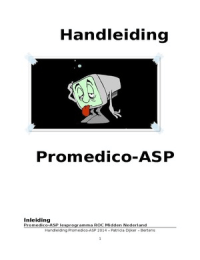AI Regulation Summary 2020/2021
Summaries: Law and Technology LLM Tilburg University
Academic Year: 2020-2021
! Disclaimer: Copyright of slides, schemes, pictures belongs to Tilburg University, its lecturers
and/or respective owners !
1
,AI Regulation Summary 2020/2021
REFERENCE LIST
LECTURE 1
HLEG, E. (2019). A definition of Artificial Intelligence: main capabilities and scientific disciplines.
Franklin, Stan. "History, motivations, and core themes." The Cambridge handbook of artificial
intelligence (2014): 15-33.
LECTURE 2
Boden, M. (2014) GOFAI. Chapter 4 of Frankish, K., & Ramsey, W. M. (Eds.) The Cambridge handbook of
artificial intelligence. Cambridge University Press.
Oskamp, A. (1992). Model for knowledge and legal expert systems. Artificial Intelligence and Law, 1(4),
245-274.
LECTURE 3
Surden, H. (2019). Artificial intelligence and law: An overview. Georgia State University Law Review,
35, 1305-1337.
Aletras, N., Tsarapatsanis, D., Preoţiuc-Pietro, D., & Lampos, V. (2016). Predicting judicial decisions
of the European Court of Human Rights: A natural language processing perspective. PeerJ Computer
Science , 2 , e93.
Bex, F.J. and Prakken, H. (2020). De Juridische Voorspelindustrie: onzinnige hype of nuttige
ontwikkeling? Ars Aequi 69, 255-259. (In Dutch. English title: 'The legal prediction industry:
meaningsless hype or useful development?')
LECTURE 4
Stahl, B. C. (2021). Concepts of Ethics and Their Application to AI, Artificial Intelligence for a Better
Future, 19.
Stahl, B. C. (2021). Ethical Issues of AI, Artificial Intelligence for a Better Future, 35.
Chapter 2: Emerging and urgent concerns in 2019 , in Crawford, Kate, Roel Dobbe, Theodora Dryer,
Genevieve Fried, Ben Green, Elizabeth Kaziunas, Amba Kak, Varoon Mathur, Erin McElroy, Andrea
Nill Sánchez, Deborah Raji, Joy Lisi Rankin, Rashida Richardson, Jason Schultz, Sarah Myers West,
and Meredith Whittaker. AI Now 2019 Report. New York: AI Now Institute, 2019.
LECTURE 5
Liu, H. Y., Maas, M., Danaher, J., Scarcella, L., Lexer, M., & Van Rompaey, L. (2020). Artificial
intelligence and legal disruption: a new model for analysis. Law, Innovation and Technology, 12(2), 205-
258.
Konrad Siemaszko et al, (Forthcoming). Sienna project D6.2: Report on adapting methods for legal
analysis of emerging technologies.
LECTURE 6
Techno-regulation: constructing AI to obey certain rules: Keyes, O., Hutson, J., & Durbin, M. (2019).
A Mulching Proposal.
Self-regulation via ethical principles and guidelines: Mittelstadt, B. (2019). Principles alone cannot
guarantee ethical AI. Nature Machine Intelligence, 1(11), 501-507.
2
,AI Regulation Summary 2020/2021
LECTURE 7
Emre Bayamlıoğlu & Ronald Leenes (2018) The ‘rule of law’ implications of data-driven decision-
making: a techno-regulatory perspective, Law, Innovation and Technology, 10:2, 295-313, DOI:
10.1080/17579961.2018.1527475
Laurence Diver (2021), Digisprudence: the design of legitimate code, to appear in Law Innovation,
Technology, 13(2) Law, Innovation & Technology.
LECTURE 8 (Not in Exam)
Pagallo, U. (2018). Vital, Sophia, and Co.—The quest for the legal personhood of robots.
Information, 9(9), 230.
Selbst, A. D. (2020). Negligence and AI's human users. BUL Rev., 100, 1315. (Section II)
Ekelhof, M. (2019). Moving beyond semantics on autonomous weapons: Meaningful human control
in operation. Global Policy, 10(3), 343-348.
3
, AI Regulation Summary 2020/2021
Lecture 1: Introduction
AI is... (depending how you want to look at it)
• Field of research
• A set of technologies
• Philosophical thought experiment
• Rhetorical tool (distinguish technologies or projects from each other, to gain funding)
• A hype
History of AI
Two parts:
1950s-1980s (AI as a field of research, thought experiments)
1980s-today (AI as a technology to be applied in practice)
Turing Test: when Alan Turing published a paper where he reconsiders the question ‘can machines
think’
- Does not enters into a philosophical debate, but proposes that in order to answer the question
we should empirically test it
- Thought experiment called as the Turing test: the point is that a computer locked in a room tries
to prove that it is a human being, interaction takes place via chat
Dartmouth Summer Research Project on AI (1956)
- “The study is to proceed on the basis of the conjecture that every aspect of learning or any other
feature of intelligence can in principle be so precisely described that a machine can be made to
simulate it. An attempt will be made to find how to make machines use language, form
abstractions and concepts, solve kinds of problems now reserved for humans, and improve
themselves. We think that a significant advance can be made in one or more of these problems
if a carefully selected group of scientists work on it together for a summer
- McCarthy: main organizer, credited with term ‘AI’
Symbolic rule-based AI
- Physical symbol system hypothesis: "A physical symbol system has the necessary and sufficient
means for general intelligent action."
- Allen Newell and Herbert A. Simon
- By applying rules to symbols machines could present intelligence
- First idea, computationally inspired, idea to produce intelligent behavior
Some examples of symbolic AI
- ELIZA: would answer statements with a question (how humans can easily be tricked into
believing computers are intelligent)
- SHRDLU: program stacked cubes by human instructing it in simple sentences
Problems being addressed through symbolic AI
• Mathematical and logical reasoning
• Natural language processing
• Reasoning as search
• Problem solving– chess etc
• Common sense reasoning
Early AI research involved cognitive, thinking skills, natural language processing, problem solving...
The Frame Problem
4
Summaries: Law and Technology LLM Tilburg University
Academic Year: 2020-2021
! Disclaimer: Copyright of slides, schemes, pictures belongs to Tilburg University, its lecturers
and/or respective owners !
1
,AI Regulation Summary 2020/2021
REFERENCE LIST
LECTURE 1
HLEG, E. (2019). A definition of Artificial Intelligence: main capabilities and scientific disciplines.
Franklin, Stan. "History, motivations, and core themes." The Cambridge handbook of artificial
intelligence (2014): 15-33.
LECTURE 2
Boden, M. (2014) GOFAI. Chapter 4 of Frankish, K., & Ramsey, W. M. (Eds.) The Cambridge handbook of
artificial intelligence. Cambridge University Press.
Oskamp, A. (1992). Model for knowledge and legal expert systems. Artificial Intelligence and Law, 1(4),
245-274.
LECTURE 3
Surden, H. (2019). Artificial intelligence and law: An overview. Georgia State University Law Review,
35, 1305-1337.
Aletras, N., Tsarapatsanis, D., Preoţiuc-Pietro, D., & Lampos, V. (2016). Predicting judicial decisions
of the European Court of Human Rights: A natural language processing perspective. PeerJ Computer
Science , 2 , e93.
Bex, F.J. and Prakken, H. (2020). De Juridische Voorspelindustrie: onzinnige hype of nuttige
ontwikkeling? Ars Aequi 69, 255-259. (In Dutch. English title: 'The legal prediction industry:
meaningsless hype or useful development?')
LECTURE 4
Stahl, B. C. (2021). Concepts of Ethics and Their Application to AI, Artificial Intelligence for a Better
Future, 19.
Stahl, B. C. (2021). Ethical Issues of AI, Artificial Intelligence for a Better Future, 35.
Chapter 2: Emerging and urgent concerns in 2019 , in Crawford, Kate, Roel Dobbe, Theodora Dryer,
Genevieve Fried, Ben Green, Elizabeth Kaziunas, Amba Kak, Varoon Mathur, Erin McElroy, Andrea
Nill Sánchez, Deborah Raji, Joy Lisi Rankin, Rashida Richardson, Jason Schultz, Sarah Myers West,
and Meredith Whittaker. AI Now 2019 Report. New York: AI Now Institute, 2019.
LECTURE 5
Liu, H. Y., Maas, M., Danaher, J., Scarcella, L., Lexer, M., & Van Rompaey, L. (2020). Artificial
intelligence and legal disruption: a new model for analysis. Law, Innovation and Technology, 12(2), 205-
258.
Konrad Siemaszko et al, (Forthcoming). Sienna project D6.2: Report on adapting methods for legal
analysis of emerging technologies.
LECTURE 6
Techno-regulation: constructing AI to obey certain rules: Keyes, O., Hutson, J., & Durbin, M. (2019).
A Mulching Proposal.
Self-regulation via ethical principles and guidelines: Mittelstadt, B. (2019). Principles alone cannot
guarantee ethical AI. Nature Machine Intelligence, 1(11), 501-507.
2
,AI Regulation Summary 2020/2021
LECTURE 7
Emre Bayamlıoğlu & Ronald Leenes (2018) The ‘rule of law’ implications of data-driven decision-
making: a techno-regulatory perspective, Law, Innovation and Technology, 10:2, 295-313, DOI:
10.1080/17579961.2018.1527475
Laurence Diver (2021), Digisprudence: the design of legitimate code, to appear in Law Innovation,
Technology, 13(2) Law, Innovation & Technology.
LECTURE 8 (Not in Exam)
Pagallo, U. (2018). Vital, Sophia, and Co.—The quest for the legal personhood of robots.
Information, 9(9), 230.
Selbst, A. D. (2020). Negligence and AI's human users. BUL Rev., 100, 1315. (Section II)
Ekelhof, M. (2019). Moving beyond semantics on autonomous weapons: Meaningful human control
in operation. Global Policy, 10(3), 343-348.
3
, AI Regulation Summary 2020/2021
Lecture 1: Introduction
AI is... (depending how you want to look at it)
• Field of research
• A set of technologies
• Philosophical thought experiment
• Rhetorical tool (distinguish technologies or projects from each other, to gain funding)
• A hype
History of AI
Two parts:
1950s-1980s (AI as a field of research, thought experiments)
1980s-today (AI as a technology to be applied in practice)
Turing Test: when Alan Turing published a paper where he reconsiders the question ‘can machines
think’
- Does not enters into a philosophical debate, but proposes that in order to answer the question
we should empirically test it
- Thought experiment called as the Turing test: the point is that a computer locked in a room tries
to prove that it is a human being, interaction takes place via chat
Dartmouth Summer Research Project on AI (1956)
- “The study is to proceed on the basis of the conjecture that every aspect of learning or any other
feature of intelligence can in principle be so precisely described that a machine can be made to
simulate it. An attempt will be made to find how to make machines use language, form
abstractions and concepts, solve kinds of problems now reserved for humans, and improve
themselves. We think that a significant advance can be made in one or more of these problems
if a carefully selected group of scientists work on it together for a summer
- McCarthy: main organizer, credited with term ‘AI’
Symbolic rule-based AI
- Physical symbol system hypothesis: "A physical symbol system has the necessary and sufficient
means for general intelligent action."
- Allen Newell and Herbert A. Simon
- By applying rules to symbols machines could present intelligence
- First idea, computationally inspired, idea to produce intelligent behavior
Some examples of symbolic AI
- ELIZA: would answer statements with a question (how humans can easily be tricked into
believing computers are intelligent)
- SHRDLU: program stacked cubes by human instructing it in simple sentences
Problems being addressed through symbolic AI
• Mathematical and logical reasoning
• Natural language processing
• Reasoning as search
• Problem solving– chess etc
• Common sense reasoning
Early AI research involved cognitive, thinking skills, natural language processing, problem solving...
The Frame Problem
4




